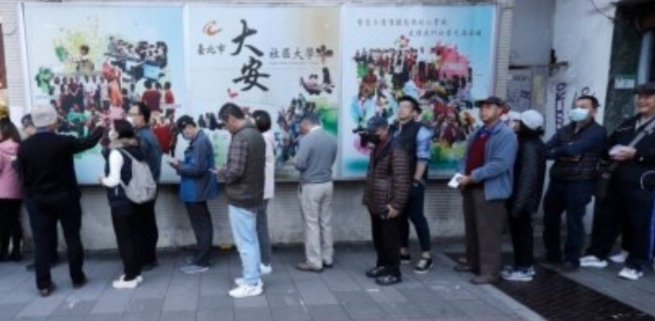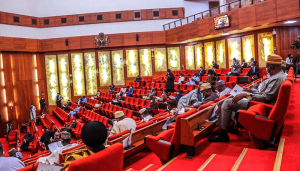Taiwan Navigating Complex Issues in Crucial Presidential Election
By Adeyemi Adekunle

As anxieties in the Taiwan Strait increased, an astounding 19 million people in Taiwan participated in Saturday’s civic duty to choose the next leader of the democratic island after a heated campaign and passionate demonstrations
Traditionally focused on the delicate dance with China, this year’s presidential election transcends the usual boundaries, delving into a spectrum of societal and economic quandaries, from residential justice to the pressing concerns of low-wage hardships for the youth.
Deciphering the determining factor in this intricate electoral landscape proves to be a formidable task, as highlighted by Sarah Liu, an esteemed expert in Taiwan politics at the University of Edinburgh.
Unlike the unequivocal sentiments that defined the 2020 election, fueled by the Hong Kong protests and anti-extradition bill fervor, the current political milieu presents a nuanced scenario. Cross-strait relations, however, retain their prominence in a fiercely contested, three-way race.
In the final campaign rallies, Vice President Lai Ching-te of the ruling Democratic Progressive Party (DPP) and Hou You-ih of the China-friendly Kuomintang (KMT) amplified their rhetoric on cross-strait relations.
Meanwhile, third-party candidate Ko Wen-je, a doctor-turned-mayor from the Taiwan People’s Party, positioned himself as an alternative for the younger demographic.
In the heart of New Taipei City, Lai urged voters to safeguard Taiwan’s democratic essence, warning against a potential tilt towards China that could jeopardize the island’s global standing.
Conversely, Hou, in the same city, framed the election as a choice between “war and peace,” firmly opposing Taiwan independence and advocating for the preservation of Taiwan’s interests.
Presenting himself as an alternative, Ko rallied his supporters, predominantly comprising young voters, to affirm the Taiwan People’s Party as a major force in the political landscape.
The narrative of the election, intricately woven with diverse perspectives, unfolds against the backdrop of competing visions presented by the three candidates.
Divergent views among Taiwanese voters further complicate the narrative. DPP supporters, cognizant of the risks associated with closer ties to China, rally behind Lai as the guardian of Taiwan’s democracy. KMT supporters, critical of the DPP’s approach, argue for the preservation of trade relations with China, emphasizing historical ties.
The Taiwan People’s Party (TPP) voters, disillusioned by years of political polarization, see in Ko a new possibility beyond the ideological clash between the major parties. For them, the TPP signifies a break from the entrenched political battles.
As the world anticipates the election outcome, the choice made by Taiwanese voters is poised to shape the island’s trajectory in global relations.
According to Liu from the University of Edinburgh, a victory for Lai would signify a continued alliance with democracies, potentially unsettling Beijing. Conversely, a return to power for the KMT, led by Hou, might lead to increased dependence on China, with Beijing exerting more influence over Taiwan’s future.
Despite the global scrutiny, some Taiwanese voters remain focused on a singular concern – the assurance that the new leader will uphold the democratic island’s peaceful and stable way of life.

A Nigerian trained investigative journalist, who cover various news beats in Nigeria.








